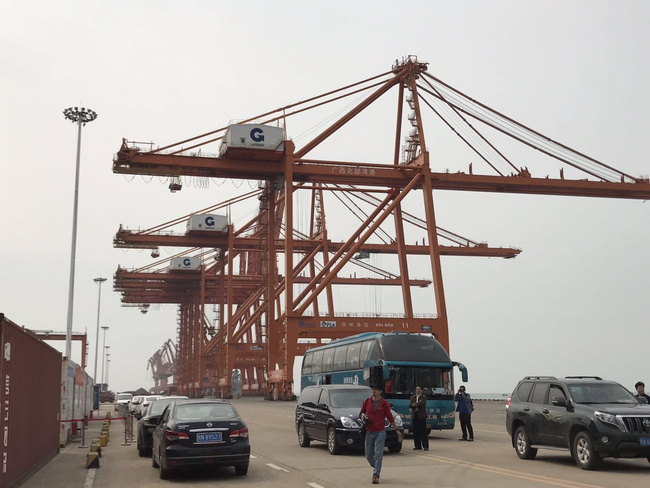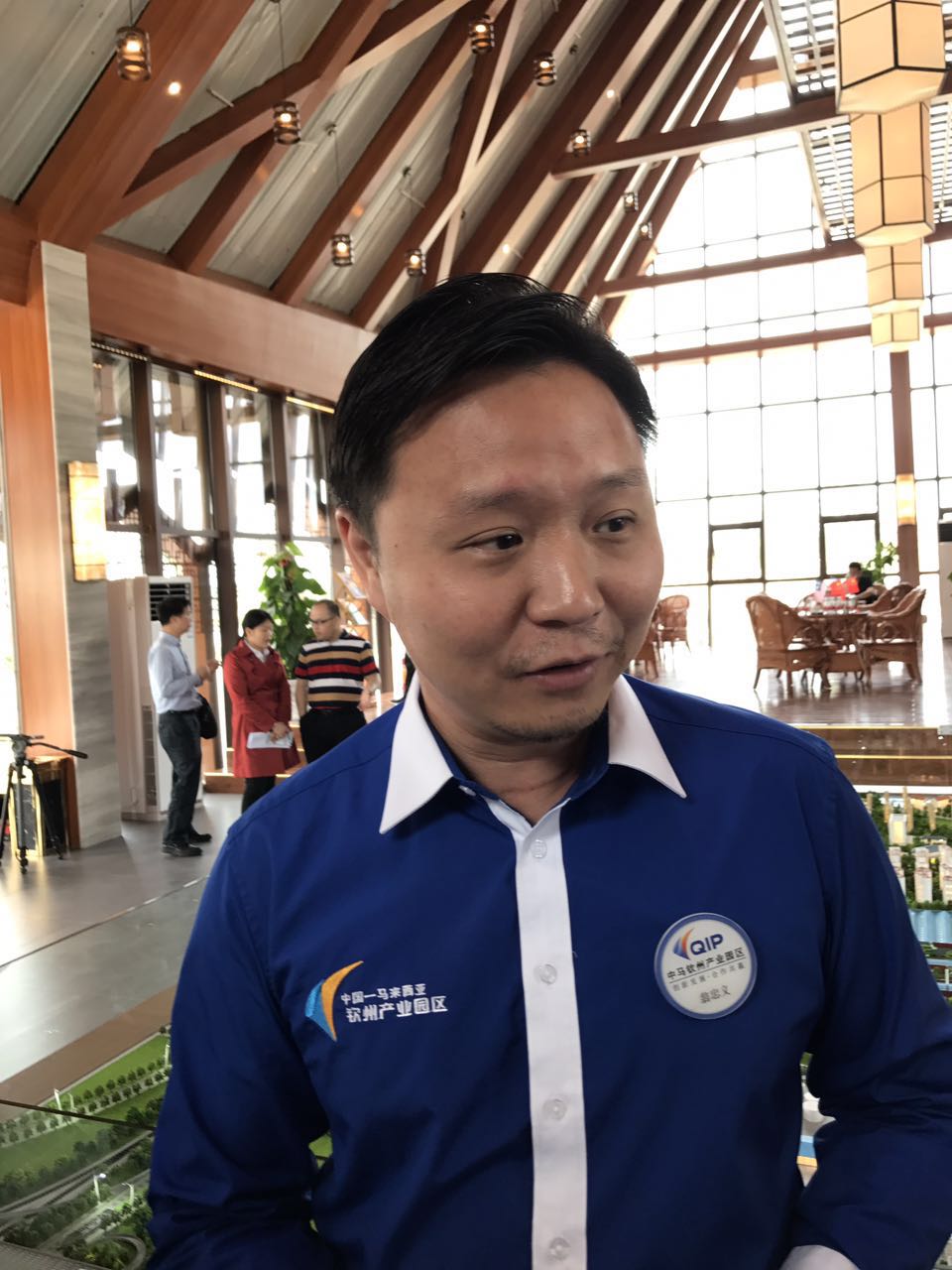Beyond government-owned enterprises, private firms from China are also participating in the Belt and Road initiative.

The Qinzhou Free Trade Port [Photo: China Plus]
The coastal city of Qinzhou is located along the southern coast of Guangxi. It's also been dubbed "the center of Chinese overland trade with Indo-China."
A refurbishment of its port area, as well as free trade policies, have given Qinzhou a solid reputation among both importers and exporters throughout the Indo-China region.
Guangxi Hebabiz Pharmaceutical technology is a local company in Qinzhou.
Last year the firm opened a new factory in the free trade area's industrial zone, co-owned by a Malaysian company.
Li Fangli, assistant general manager of Hebabiz, says the company's profit margins have greatly improved after the factory went into operation, mostly due to the free trade policies.
He says "In the past, we only exported raw materials to Malaysia. You know, because it's raw, we don't benefit a lot. But now with the synthetic factory jointly built by our company and a Malaysia firm, we can also get a much bigger share from the final product."
As part of the "Belt and Road" initiative, China is currently promoting the Qinzhou Free Trade Area to integrate more with other participating countries.
The China-Malaysia Qinzhou Industrial Park has been jointly set up by both countries' governments.
Along with pharmaceutical firm Hebabiz, the zone also features companies producing palm oil and rubber products, as well as bird-nest products.
These are products produced by the saliva of swifts, and are prized in Chinese culture for their use in foods and as medicinal products.
A bird's nest processing base is expected to be completed in the China-Malaysia Qinzhou Industrial Park in June.
Malaysia has also agreed to export raw bird's nests to China during a trip to China late last year during Malaysian Prime Minister Najib Razak's visit.

Dato Ong Chong Yi is the president of the China-Malaysia Qinzhou Industrial Park. [Photo: China Plus]
Dato Ong Chong Yi, president of the China-Malaysia Qinzhou Industrial Park says "We are more than willing to see Malaysia firms coming to this industrial park, and I have heard that more and more Malaysian companies are showing strong interests in this. I think, Malaysia have an advantage in traditional industries like producing palm oil, rubbers, and bird-nest products, as well as halal food and other kinds of food processing."
In 2016, 1.4 million containers also passed through the Qinzhou Port, up 60 percent year on year.
本站部份资料来自网络或由网友提供,如有问题请速与我们联系,我们将立即处理!
版权所有©四级英语单词 网站地图 陇ICP备2023000160号-4
免责声明:本站非营利性站点,以方便网友为主,仅供学习。